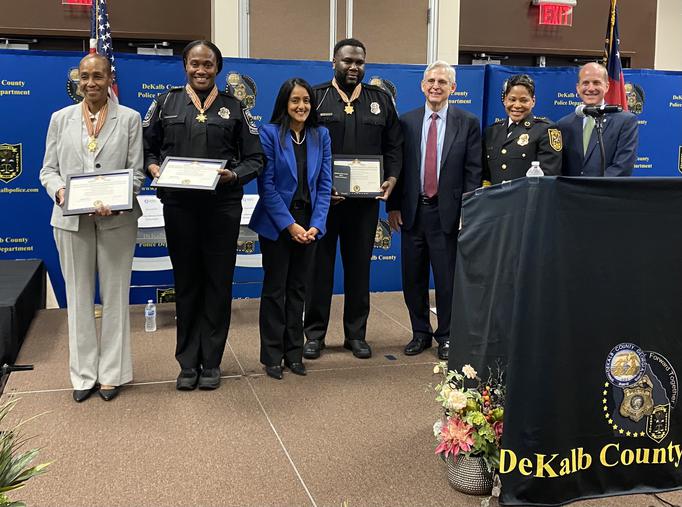At the Council of Europe (COE) headquarters in Strasbourg, France, on May 12, Deputy Assistant Attorney General (DAAG) Richard Downing of the U.S. Department of Justice’s Criminal Division signed the Second Additional Protocol to the Convention on Cybercrime on enhanced cooperation and disclosure of electronic evidence on behalf of the U.S. government. This strengthening and expansion of the multilateral international treaty commonly called the Budapest Convention is part of the United States’ steadfast commitment to helping nations, including the United States, fight cybercrime by obtaining access to needed electronic evidence.
The Second Additional Protocol to the Budapest Convention will accelerate cooperation among parties to protect our citizens from cybercrime and hold criminals accountable. As cybercrime proliferates, electronic evidence is increasingly stored in different jurisdictions. The Second Additional Protocol is specifically designed to help law enforcement authorities obtain access to such electronic evidence, with new tools including direct cooperation with service providers and registrars, expedited means to obtain subscriber information and traffic data associated with criminal activity, and expedited cooperation in obtaining stored computer data in emergencies. All these tools are subject to a system of human rights and rule of law safeguards.

At the signing, DAAG Downing said, “The Budapest Convention is a truly remarkable international instrument. Its technology-neutral approach to cybercrime has created an enduring framework for cooperation that ensures law enforcement has the tools they need to respond to new criminal methods.” He noted that 66 countries are currently party to the Convention and more accede every year.
Today’s signing, which took place within the framework of an international conference on enhanced cooperation and disclosure of electronic evidence held in cooperation with the Italian Presidency of the COE Committee of Ministers, was the culmination of nearly four years of negotiation by the U.S. delegation, composed of U.S. Department of Justice and Department of State representatives.
The U.S. Department of State’s Bureau of International Narcotics and Law Enforcement Affairs is a leading donor to the Council of Europe Cybercrime Program, which provides crucial advice and technical assistance to help countries join and implement the Budapest Convention.
The United States remains committed to the Budapest Convention as the premier international legal instrument for fighting cybercrime. As DAAG Downing said today, “It is our collective vision that every country that is serious about fighting cybercrime and that provides for the protection of human rights should become party to the Budapest Convention. The Convention strikes the right balance between imposing obligations on nations to have robust laws and capabilities and providing the flexibility necessary for nations with different legal systems to join.”
Additional information about the Second Additional Protocol to the Budapest Convention may be found here.









